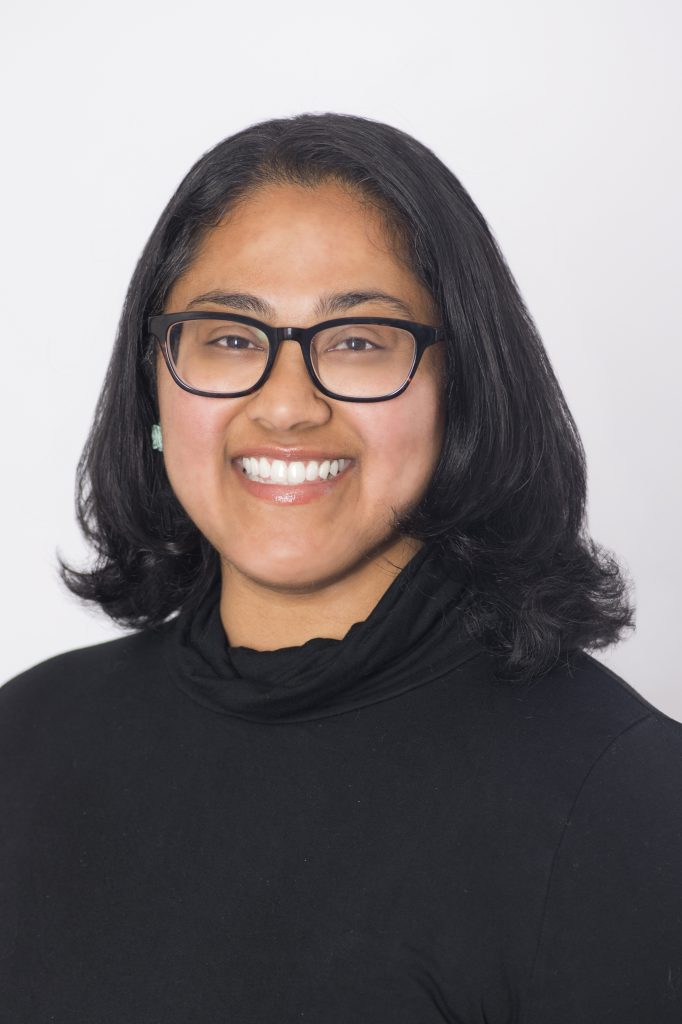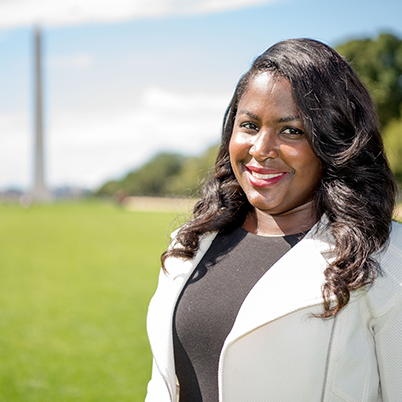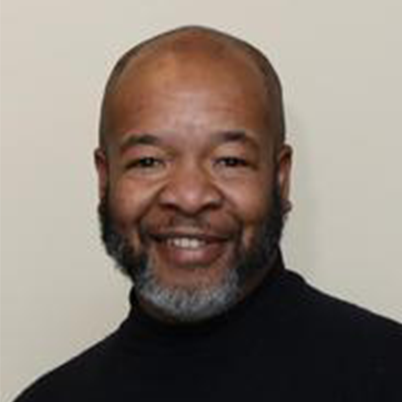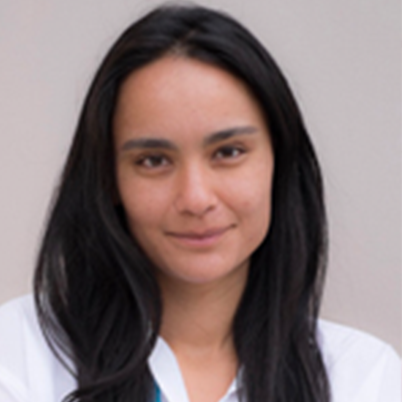
Learnings in Leadership: Karen Kali, Washington, DC
04.06.2021
Karen Kali is the Senior Program Manager of Special Initiatives at the National Community Reinvestment Coalition (NCRC). In her role, she focuses on aging in the community, Age-Friendly Banking, healthy communities, and emerging areas of interest. Prior to joining NCRC, Karen assisted in comprehensive neighborhood planning community engagement in Iowa; provided technical assistance to cities, counties, and states creating affordable housing trust funds; provided housing with services consulting with Capital Impact Partners; wrote extensively for HUD’s Office of Policy Development & Research with Sage Computing; and served as a commissioner for the Montgomery County Commission on Common Ownership Communities, resolving consumer disputes filed within the Office of Consumer Protection in Montgomery County, Maryland. Karen serves as the Wellness chairperson for her neighborhood school’s Parent Teachers Association, advocating for safe routes to school, clean and accessible water for all students, and fresh foods and salad bars in elementary schools.
Our Senior Associate of Strategic Partnerships, Raven Gomez, spoke with Karen about her work, health equity in health system transformation, and her insights for fellow advocates:
Families USA: Tell us more about your work focused on healthy communities: what brought you to this work, why do you do what you do, and how you apply a racial equity lens.
Karen: My background is in urban planning and over the years I’ve had the pleasure of working in various communities across the country on issues mostly surrounding affordable housing, aging in community, and community engagement. I first became interested in the housing field in high school while volunteering with my mom for my county’s Point in Time Count of people who were without homes. Early on, the need for affordable housing and the role it has in facilitating things like health, employment, education, opportunity, stability, etc. was clear to me. Housing is health.
mom for my county’s Point in Time Count of people who were without homes. Early on, the need for affordable housing and the role it has in facilitating things like health, employment, education, opportunity, stability, etc. was clear to me. Housing is health.
Applying a racial equity lens is part of assessing the problem, understanding the data, pinpointing policy, and developing programmatic solutions. We know that explicit and implicit discrimination and bias exist. The U.S. is rooted in structural racism—there’s no question about that. I think we have to pay special attention to race and ethnicity as well as to the intersection of additional identities – gender, sexual orientation, age, disability, etc. – because that potential for structural discrimination can be intensified with layered identities. It’s about noticing patterns, asking questions based on parsing out intersectional identities and impacts, and then examining the institution and structures that reinforce the status quo and exacerbate health disparities. Incorporating racial equity and intersectionality into health systems change is a constant, intentional process of consideration and analysis with healthy communities.
Families USA: How has COVID-19 affected your work (recognizing that there can be both challenges and opportunities coming out of COVID-19 for your work)?
Karen: The biggest impact is that, for the most part, I don’t have to provide any context around social determinants of health anymore. Sadly, people just get it now because of the pronounced health disparities we’ve seen in the pandemic. It’s my perception that the connection between zip codes and health outcomes isn’t met with as much skepticism as it once was—I don’t need to spend as much time convincing anyone that your zip code is the greatest contributor to your health outcomes. There is an opportunity here, for health systems especially, to collaborate with community development organizations more intently than perhaps they needed or even wanted to in the past. It’s an opportunity for somewhat siloed fields to move a bit further along together on shared goals.
Families USA: Tell us about a recent, important achievement you’ve made in your work.
Karen: Recently, the Federal Reserve Board of Governors had an open comment period in regard to an Advanced Notice of Proposed Rulemaking (ANPR) around the Community Reinvestment Act (CRA). From a health equity perspective, the CRA can be an excellent tool to provide resources to underserved communities to address community needs that ultimately improve health outcomes. Banks choose to invest in health and community development projects in part because of the CRA because banks obtain CRA credit for eligible investment activity. Hospitals and health systems need investment partners, so it’s a mutually beneficial relationship for both entities.
Our CRA team collaborated with our coalition of community reinvestment organizations, Community Development Corporations, Community Development Financial Institutions, health organizations, medical professionals, and various others to provide detailed, targeted comments for the Federal Reserve to help influence its thinking on CRA. For us, this was the first time we really centered health equity in how we approach CRA by creating campaign materials and resources for the health system audience. We’ve also held numerous meetings, calls, and presentations with colleagues and organizations in public health. There has been great realization around the potential CRA has for transforming health equity.
Families USA: What are you most excited about right now in your work?
Karen: I think now more than ever I’m seeing and hearing a desire and renewed commitment from health systems to tackle racism in those health systems. Last summer we saw several prominent declarations that racism is a public health crisis. NCRC is focused on race and health inequity training for health system staff, but we’re also interested in wider community-level investment. I’m not excited about the way we got here, but I’m feeling hopeful that as we come out of this pandemic and continue to address issues such as police brutality, we can do so with greater clarity and emphasis on the connection between health, racial equity, and community change.
Families USA: What challenges have you faced doing this work/being in this field, and what have you learned from those challenges?
Karen: Relationship building is everything and the work of health equity feels very siloed between community development and public health. I understand the divided nature, but I think for some of the local community and economic development organizations I work with, breaking into that inner circle of health systems players to address health equity work from an economic justice perspective can be very challenging.
Families USA: What does health system transformation from a health equity lens look like to you?
Karen: At a base level, it means ensuring a health system that is fair to everyone in a comprehensive way. To me, at a foundational level that means ensuring cultural competency and addressing biases at all levels and roles within the health system. I recently had a great conversation with someone around state and local responses to maternal mortality among Black women. It’s a huge issue. The fact that we’re a developed nation and this is such an issue for Black women is unconscionable. Looking at the layers of a white supremacist culture and how it permeates so much within a system, where we are right now with Black maternal issues is a product of systemic racism. We need to unpack each and every part that functions to support the whole of that system. That likely means changes to Medicaid coverage, addressing implicit bias among medical providers, etc. From a community economic development perspective, it’s developing and financing maternal, birthing, and child health centers in neighborhoods where that service is needed so moms and families aren’t faced with health access gaps. All these parts need to come together.
Families USA: Thinking about the communities NCRC works with, what do you think the health care system needs to get better at or should be paying for?
Karen: Sometimes we have to spend a lot of time presenting our business case to health care systems and hospitals on why they should be interested in making significant community economic development investments in their own communities, as well as moving beyond the low-hanging fruit and toward really big, bold initiatives. There’s evidence that upstream social determinants impact health outcomes and risk factors. I think more and more hospitals and health systems should be placing a major emphasis on affordable housing and housing stability in livable communities, especially since we know the role housing plays in health is well documented.
Families USA: What tips do you have for other advocates in the health equity and system transformation space?
Karen: This whole system and the transformation that advocates are working toward is an incredibly interdisciplinary activity. There’s no way to know everything and I don’t pretend that I do. I’d focus on your area of concentration, get experience in related areas, and learn enough to be dangerous. Build a team and coalition of advocates and keep the momentum going in a sustainable way so that when opportunities come to you, such as being approached by a health system, you’re ready to jump. Think comprehensively and identify the parts that need to be part of the transformation, and collaborate to make it happen. A coalition of focused advocates can make powerful change happen.
Families USA: How do you stay engaged and not burn out?
Karen: I absolutely love meeting and talking with our NCRC members and prospective members—it’s always the highlight of my workday. We have over 600 members across the country. Calls, Zooms, and in-person meetings (when we could do that) are really great ways to stay engaged with them and their concerns, what they’re most focused on, and how I can help. It has 100% been burn out balm for me. It’s just fun to get to talk to folks in different communities working on similar initiatives and make connections when possible.
Families USA: What is the next big project you’ll be working on?
Karen: Well, I don’t want to jinx it but I’ll generally say I’m working with a great national partner on creating a community development health policy framework, and health equity is foundational to the discussion and outcome of the conversations. We’re in the beginning stages of coordinating and I look forward to sharing more about it at some point soon.
—
You can get in touch with Karen to learn more about the great work being done with NCRC below:
Karen Kali: kkali@ncrc.org
NCRC website: https://ncrc.org/health/
Click here to join the National Health Equity Action for Transformation Network and be a part of the movement to develop and implement health equity-focused health care delivery and payment policies.
key resources

Learnings in Leadership: Amber Hewitt, Washington, DC
05.14.2020 / Insights Column

Learnings in Leadership: Broderick Crawford, Kansas City, Kansas
07.10.2019 / Insights Column

Learnings in Leadership: Allison Neswood, Denver, Colorado
02.27.2020 / Insights Column
